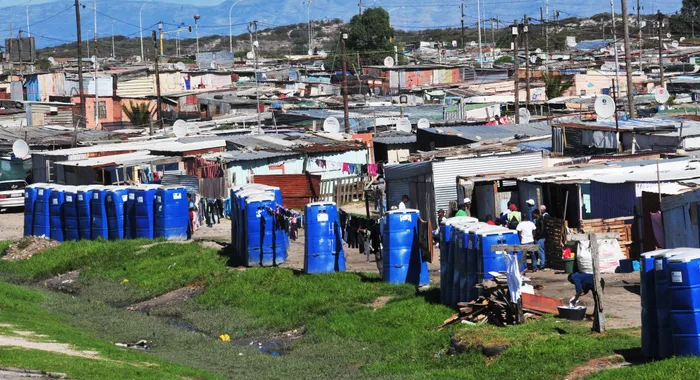R2 billion budget is not enough for housing in WC

Shacks continue to grow as people are desperately waiting for houses. Picture Cindy Waxa : AFRICAN NEWS AGENCY / ANA
Out of a budget of R2 billion, the Western Cape Department of Human Settlement (WCDHS) has already spent R659 million on housing-related projects across the province.
Civil rights organisations, however, believe that the figures do not accurately reflect the harsh living conditions of people in the province as informal settlements continue to grow.
While the department said it has remained committed to improving the living conditions of its people, Bonga Zamisa, Advocacy Officer and Communication Assistant at the Social Justice Coalition, said the money spent by the department on housing projects ‘is only on paper’.
He said communities on the ground are still waiting for the Western Cape government to present realistic time-lines on existing and upcoming projects that are being spearheaded by the province together with local municipalities.
"In the Western Cape, and in particular, Cape Town, we have areas like Taiwan that have been in the housing pipeline for more than two decades, and today, there’s still no form of proper housing that has been built for that community. When the government says living conditions have changed, I disagree. Instead, the housing backlog continues to grow, and informal settlements have increased," said Zamisa.
Over the past five years, the department has delivered over 80 000 housing opportunities, and the current register for housing demand is over 550 000.
With a budget of R2 billion, the department said it could deliver approximately 16 000 housing opportunities a year.
"The available resources are, therefore, not sufficient to meet the demand. Housing opportunities delivered are therefore prioritised for the most vulnerable in our communities and those waiting for the longest on the housing demand database," said Muneera Allie, Deputy Director of Communication at WCDHS.
Asked whether the department has done enough to improve the housing situation in the Western Cape over the past 10 years, she said the reality of the environment compared to 10 years ago is very different from the reality and challenges experienced today.
"The Western Cape Department of Human Settlements is of the view that it has remained committed to strategically using and maximising its resources to deliver housing opportunities to residents of the Western Cape," she said.
She said the current challenges that hamper human settlement delivery include illegal land invasion, illegal occupation of government units, extortion or the "construction mafia," increased costs within the built environment, and in-migration to the province.
"Illegal land occupation and invasion of government housing units have become a growing concern for the Department. In the past three years, the Department has experienced more than 1600 invasions of land earmarked for human settlement development across the province," said Allie.
She said as a result of illegal land invasions, the department needed to spend additional funds to secure its properties and housing developments.
An estimated R100 million was spent on securing land and properties, and this money could have built 700 housing units.
"In addition to funds spent on securing land and properties, the Department has called upon communities to assist in the prevention of illegal land occupations by reporting them to the relevant authorities," said Allie.
Zamisa said the province needs to work directly with municipalities, such as the City of Cape Town, on the issue of land availability for housing, as this will help identify parcels of land, making it easier to upgrade informal settlements and provide access to basic services.
However, Allie said it is challenging to explicitly indicate whether all vacant land in the Cape Metro and Province has the potential for housing development.
"Land parcels that are identified for possible housing development first need to be assessed individually to ascertain whether they meet the criteria for development in terms of sustainability. If suitable, land needs to be acquired by the Department to commence planning," said Allies.
She said the department is, therefore, unable to confirm whether or not there is "enough" land available in the province to build more houses.
"For the current financial year, the Department, together with local municipalities, has various housing projects across the province. These include housing units as well as serviced sites. The Department estimates delivery of between 10,000 and 12,000 housing opportunities, barring any further challenges that may hamper delivery," said Allie.
Related Topics: